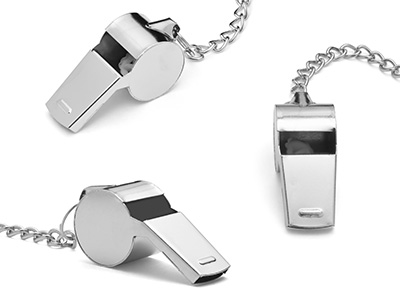
On June 9, 2016, the Securities and Exchange Commission (‘SEC”) awarded the second largest whistleblower bounty – $17 million – granted under the Dodd-Frank whistleblower rules to date. Previously, the highest whistleblower awards were a $30 million award in September 2014 and a $14 million award in October 2013. The $17 million award comes on the heels of $26 million in whistleblower awards given to five anonymous individuals over the last month alone. These awards serve as a warning to companies that the SEC takes its whistleblower program seriously and will continue to encourage and reward company insiders for coming forward with information that leads to successful enforcement actions. As Sean X. McKessy, Chief of the SEC’s Office of the Whistleblower – a department created by the SEC to give whistleblowers a place to submit their tips – said, “[W]e hope these substantial awards encourage other individuals with knowledge of potential federal securities law violations to make the right choice to come forward and report the wrongdoing to the SEC.”
By law, whistleblowers may be eligible for a bounty if they provide the SEC with original information that leads to successful enforcement of an action. Consistent with that law, on June 9, 2016, the SEC’s Claims Review Staff issued an order, Release No. 78025, granting the $17 million award because the whistleblower “substantially advanced” the SEC’s investigation, provided additional information of which the SEC was previously unaware, and allowed the SEC to conserve time and resources. The order declined to grant awards to two other individuals, finding that the information they provided did not lead to successful enforcement of the action at issue. Because the SEC protects the confidentiality of whistleblowers, the order did not provide information that might reveal the whistleblowers’ identities, such as the company involved or the types of legal violations at issue. However, when monetary sanctions in an action exceed $1 million, whistleblower awards can range from 10 to 30 percent of the money the SEC collects, so the SEC likely secured between $56 and $170 million in the action. The SEC has been clear that whistleblower payments come from an investor protection fund established by Congress and financed with money paid by securities law violators to the SEC. The SEC does not take or withhold money from harmed investors to pay whistleblower awards.
According to the SEC’s press release announcing the $17 million award, since the SEC’s whistleblower program began in 2011, the SEC has awarded more than $85 million to 32 whistleblowers. Director of the SEC’s Division of Enforcement Andrew Ceresney emphasized that “[c]ompany insiders are uniquely positioned to protect investors and blow the whistle on a company’s wrongdoing by providing key information to the SEC so [it] can investigate the full extent of the violation.” The law also incentivizes company insiders with information about potential federal securities law violations to bypass company internal reporting requirements and structures and report suspected violations directly to the SEC. As we previously reported, whistleblowers who do not report internally can receive an enhancement of their bounty percentage, allowing them to obtain 30% of the sanctions collected. This financial incentive to report directly to the SEC – along with the high number of whistleblower awards issued over recent months – may be a harbinger of significant whistleblower actions to come. Companies would be wise to take note and to strategize about ways to discourage employees from reporting directly to the SEC, including making internal reporting as convenient and attractive for employees as possible.

